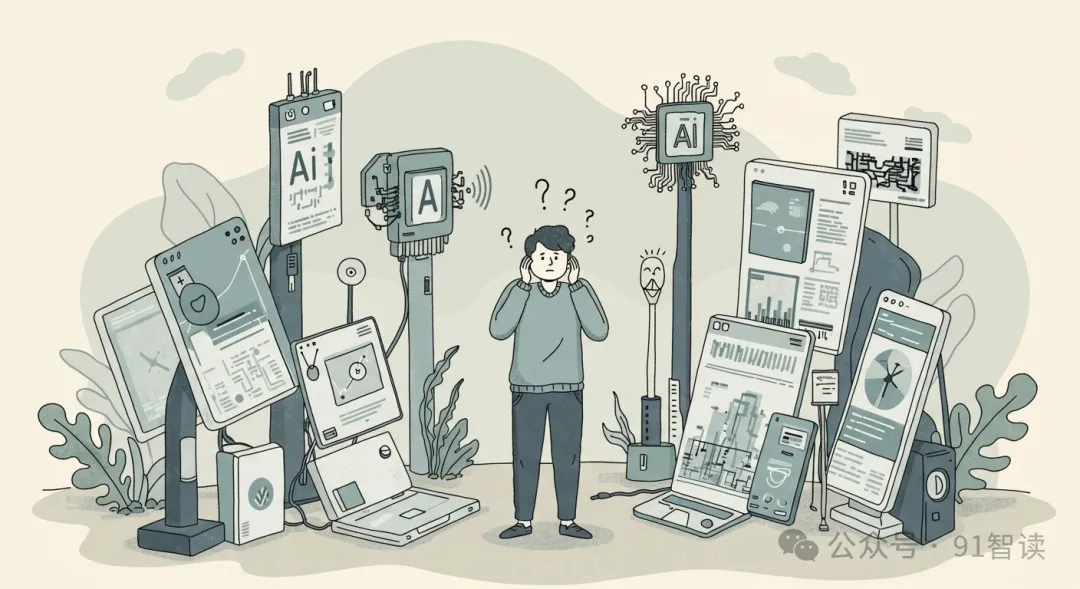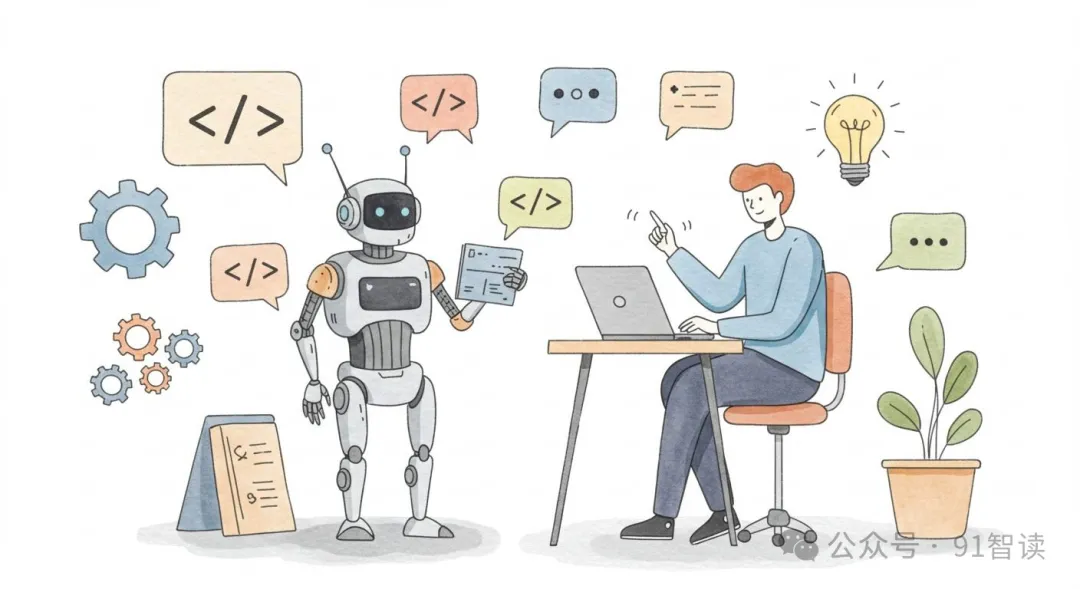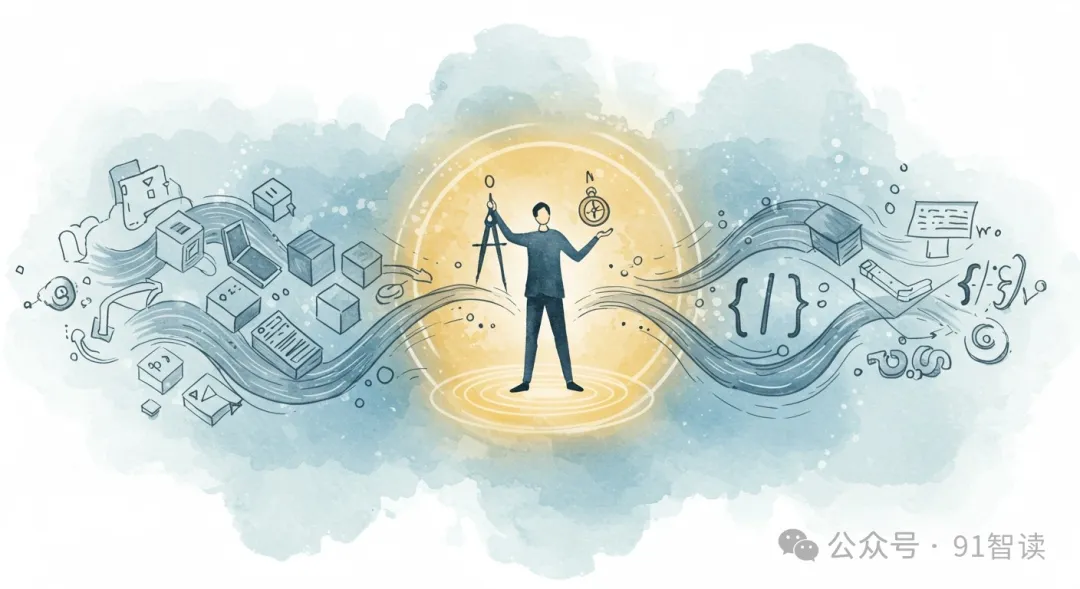Vibe Coding: The New Rhythm for Programmers, Are You In?

Recently in tech circles, I’ve noticed a new term: “Vibe Coding.” Vibe carries meanings of resonance, connection, and atmosphere, suggesting that we can code in resonance with AI, completing projects based on intuition and personal taste.
Sounds a bit mystical, doesn’t it? Recent international interviews and related communities have been discussing this new form of coding that might change how we write code.
Notably, several leaders from Y Combinator (a well-known startup incubator) discussed this topic. After surveying numerous startup founders, they concluded: “Vibe Coding” is likely to become the mainstream programming approach in the future. If you don’t keep up with this wave, you might truly be left behind.
So what exactly is “Vibe Coding”? Simply put, it’s a method that relies on intuition and inspiration, using AI tools to increase coding efficiency by 10x or more. You no longer need to scrutinize every line of code for details; AI can handle many repetitive tasks. This isn’t just speculation but is closely tied to the rapid development of artificial intelligence.
I reviewed the original transcripts from these videos, and these founders’ perspectives are quite interesting. Let me share a few:
- The founder of a company called Outlet said: “With AI tools now available, every programmer can become 10x more efficient, so human taste is more important than ever.” Programmers now need to cultivate taste. This means we can delegate the labor-intensive coding tasks to AI and focus our energy on product design and user experience. For example, when making an app, is a minimalist interface better, or one with more features? That depends on your taste.
- Obby, the CEO of Asra and an experienced programmer, shared: “I hardly write code anymore; I mainly think about implementation and then review what the AI produces.” This reminds me of mentoring junior developers, where you have to watch them debug. AI is like a smart assistant, but you still need to be a “teacher,” pointing out its mistakes.
- RB from Copycat also commented: “I used to obsess over my code, but not anymore. My efficiency has tripled, and if something’s wrong, I just discard it and start over—no psychological burden.” It’s like building with blocks; when you’re fast, you can knock it down and rebuild without regret.
- Most dramatically, the founder of A Train Loop exclaimed: “Our current speed is 10 times faster than six months ago and 100 times faster than a month ago!” He says he doesn’t feel like a programmer anymore, but more like a product manager. This makes me think AI is genuinely liberating us from the drudgery of coding.

After hearing all this, don’t you feel like programming is undergoing a transformation? AI tools certainly boost efficiency, but they’re not omnipotent. For instance, AI still struggles with debugging. You need patience, guiding it like a child to identify problems. Sometimes, having it rewrite code entirely is faster than finding bugs.
Regarding tools, programmers now favor Cursor, an exceptionally useful IDE. Another popular one is Windsurf, which automatically organizes your entire codebase neatly.
One survey from the video surprised me: a quarter of founders reported that 95% of their code is written by AI. What does this indicate? AI is no longer just an assistant but the main workforce. Even technically proficient programmers rely heavily on it.
So what impact does “Vibe Coding” have on us? Here are a few points I’ve summarized:
- Programmers aren’t just coding anymore; they must learn to think about products, understand customer needs, and define requirements accurately. While AI handles code details, we need to figure out what users want and how to design stable systems. For example, when creating an e-commerce site, you need to consider page layout and search function optimization.
- Job hunting methods might change. Previously, interviews tested algorithms, but now they’ll assess how you use AI to solve problems and evaluate code quality. Interviewers might ask, “How would you use AI to implement this feature?” rather than having you manually write a sorting algorithm.
- Building products for startups is faster. AI can help you go from idea to launch in days. For instance, if you want to create an accounting app, AI can generate the basic code, and you just need to fine-tune it. However, to scale successfully, you still need real skills—knowing how to make systems robust enough for millions of users.
“Vibe Coding” is a new door opened by AI for programmers. Higher efficiency, lower barriers, and easier realization of good ideas. But this doesn’t mean existing skills are obsolete. The core abilities to debug, understand users, and see the big picture remain essential technical foundations. It’s like building a house: AI can help carry bricks, but designing a sturdy and attractive house still depends on you.

To conclude:
- “Vibe Coding” is an AI-driven approach that emphasizes intuition, taste, and efficiency.
- Programmers need to evolve from code writers to product experts and architects.
- The ability to debug and evaluate code quality remains crucial.
- Startups can launch faster, but scaling still requires solid skills.
While writing this, I’ve been experimenting with new tools and approaches. I’ll share more details tomorrow—let’s keep up with the rhythm together! 😁
👇Scan the QR code with WeChat to follow “91WiseRead” for daily updates and growth together.

👇Welcome to add me as a WeChat friend to discuss growth stories together.




